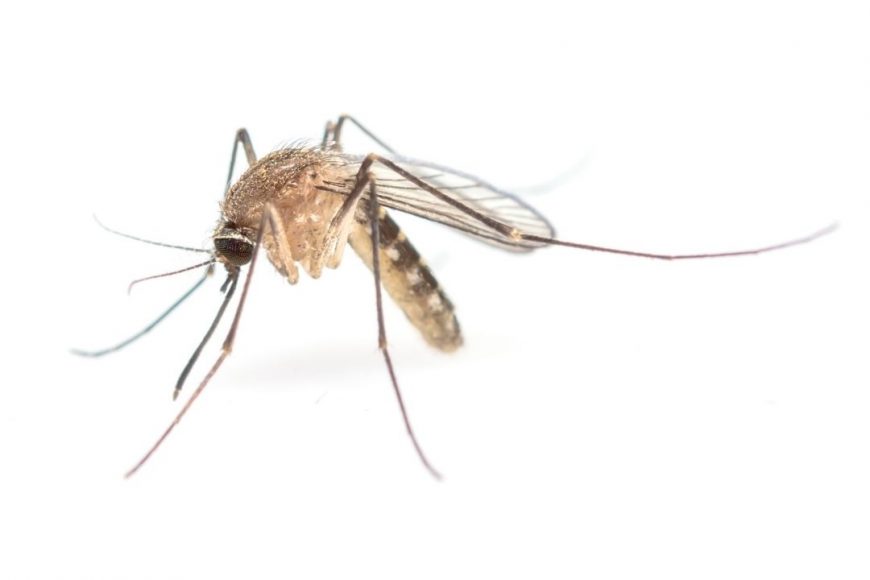Fill out the form below and a Cypress Creek representative will be in touch with you about your pest control needs.
BLOG

Mosquito Species in the Greater Houston Area
If you’ve spent any time in the Greater Houston area, chances are you’ve experienced the relentless buzz of mosquitoes. Houston’s warm and humid climate makes it the perfect breeding ground for these pesky insects. But did you know there are over 80 different mosquito species in Texas, with several prominent ones active in Houston? Each species comes with its own unique habits, behaviors, and concerns.
This blog will provide an overview of the most common mosquito species in the Houston area, their distinguishing features, and their impact on human health. We’ll also share tips on how to reduce mosquito populations and protect yourself from the diseases they transmit.
Why Mosquitoes Thrive in Houston
Houston’s climate is a dream come true for mosquitoes, much to the dismay of its residents. With year-round mild temperatures, frequent rains, and an abundance of standing water, this region provides the ideal conditions for mosquito breeding. According to the Harris County Public Health Mosquito Control Division, mosquito populations spike during the warmer months, especially after heavy rains and floods.
Beyond the annoying bites, mosquitoes are carriers of diseases such as West Nile Virus, Zika Virus, and Dengue Fever. That’s why understanding the different species and their habits is crucial for effective control and prevention in Greater Houston.
Common Mosquito Species in the Greater Houston Area
When it comes to mosquitoes in Houston, they’re not all the same. Here’s a breakdown of the most common species you’re likely to encounter:
1. Asian Tiger Mosquito (Aedes albopictus)
- Appearance: Small, black mosquitoes with distinctive white stripes on their legs and body.
- Behavior: Daytime biters, most active during early morning and late afternoon.
- Habits: They breed in small containers of standing water, such as planters, tires, and pet bowls.
- Health Risks: Known vector for diseases like Dengue, Zika, and Chikungunya viruses.
Asian tiger mosquitoes are aggressive and will frequently bite humans rather than animals. They’re commonly found in residential areas where standing water accumulates.
2. Southern House Mosquito (Culex quinquefasciatus)
- Appearance: Brownish mosquitoes with lighter markings on their body.
- Behavior: Active at night, often biting humans while they sleep.
- Habits: Breeds in foul-smelling water sources, including sewers, drainage ditches, and clogged gutters.
- Health Risks: Primary carrier of West Nile Virus in Texas.
These mosquitoes prefer stagnant, polluted water and are less likely to thrive in clean, fresh water areas.
3. Yellow Fever Mosquito (Aedes aegypti)
- Appearance: Similar in size and color to the Asian Tiger, with white markings on the head and body.
- Behavior: Fierce daytime biter with a preference for human blood.
- Habits: Breeds in shaded areas with stagnant water, such as flowerpots and outdoor containers.
- Health Risks: Significant vector for Yellow Fever, Zika Virus, and Dengue Fever.
While these mosquitoes are less common in Houston compared to Aedes albopictus, they pose a high risk because of their ability to spread multiple diseases.
4. Floodwater Mosquito (Aedes vexans)
- Appearance: Medium-sized mosquito with pale banding on its legs.
- Behavior: Typically active in the evening and at night.
- Habits: Breeds in temporary pools of water created by heavy rains, hence its nickname.
- Health Risks: Can transmit diseases like Eastern Equine Encephalitis and Dog Heartworm.
Floodwater mosquitoes are a frequent problem after hurricanes or tropical storms in Houston, often emerging in massive numbers after rainfall events.
How Mosquitoes Impact Houston’s Residents
The constant presence of mosquitoes isn’t just a nuisance; it’s a significant public health concern. Diseases like West Nile Virus and Zika Virus have been recorded in Houston, and the city dedicates significant resources to mosquito surveillance and control.
Harris County Mosquito Control regularly tests mosquito populations for potential disease outbreaks. Ensuring that residents are informed and protected is a top priority, but community involvement is critical.
Preventing Mosquito Problems in Your Home
Combatting mosquitoes in Houston is a community effort. Here’s how you can help reduce their populations and protect yourself:
1. Eliminate Standing Water
- Regularly empty water from flowerpots, outdoor toys, pet bowls, and birdbaths.
- Clear clogged gutters and repair leaks to prevent water from pooling.
2. Use Mosquito-Repellent Strategies
- Install fine-mesh screens on windows and doors to keep mosquitoes outside.
- Apply EPA-approved mosquito repellents containing DEET, picaridin, or oil of lemon eucalyptus.
3. Protect Yourself Outdoors
- Wear long-sleeve shirts and pants, especially during the dawn and dusk hours when mosquitoes are most active.
- Use mosquito nets if you’re enjoying outdoor activities in heavily wooded areas.
4. Encourage Natural Predators
- Promote habitats for mosquito predators like dragonflies and frogs in your yard.
- Add mosquito-eating fish, like Gambusia, to ornamental ponds.
5. Invest in Professional Mosquito Control
- Schedule regular treatments with a licensed pest control service.
- Consider installing mosquito misting systems for ongoing protection.
How Houston is Fighting Mosquitoes
Harris County and the City of Houston have made significant efforts to address mosquito populations. This includes spraying insecticides, conducting aerial mosquito control operations, and introducing sterile mosquitoes to curb reproduction rates.
Residents can help by reporting mosquito infestations and following city guidelines for mosquito control. Public education campaigns aim to raise awareness and encourage active participation.

